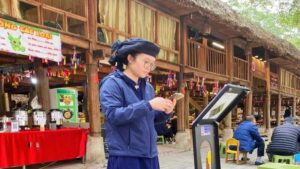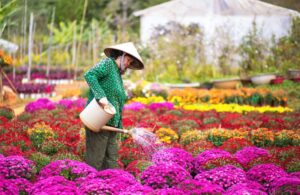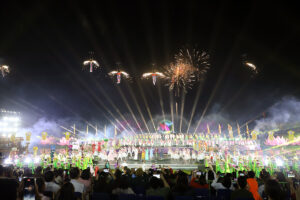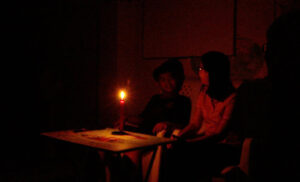A lot of well-known tourism sites throughout the country have become vast dumping grounds. More famous tourism sites seem to have more rubbish because they attract more visitors.
A reader of Tuoi tre newspaper sent a picture of the Cam Mountain to the editorial board with the comment that the mountain is getting higher thanks to the rubbish.
Cam Mountain has been well-known as the most beautiful and the highest mountain out of the seven mountains in the southern province of An Giang.
The mountain has been receiving travelers over the last few years. They come there in the spiritual pilgrimages, because this is considered a mysterious mountain which has supernatural power.
The travelers, who visit the Chua Xu Nui Sam (the Queen of the Sam Mountain) in Chau Doc town, would never forget to drop into the Cam Mountain, an ideal tourism site.
However, the mysteriousness of the mountain still cannot prevent people from throwing things and turning the mountain into a mountain or rubbish.
Especially, the rubbish dumps here have encroached on the land of plants. Since the day the rubbish dumps appeared, the plants had no more land to live. The dumps have spoiled the natural beauty of the forests and mountains, while having caused serious environment pollution.
The visitors to the Cam Mountain usually try to hang plastic bags or any other things on the tree-trunks and fences as a “method” to leave misfortune and diseases and welcome lucks. It’s unclear how they would be lucky, but it’s clear that the environment has been seriously damaged.
Quang Ninh province, which possesses Ha Long Bay, one of the new seven world’s wonders, is also facing big challenges because of the serious pollution.
Scientists have said that every year, the Ha Long - Bai Tu Long bay has to receive 43,000 tons of COD and 9 tons BOD (suspended organic matter), 5600 tons of nitrogen and 2000 tons of phosphorous.
A lot of workshops and conferences have been held, where scientists and local authorities discussed the way to rescue the Ha Long Bay.
Dinh Duc Truong from the Hanoi Economics University stressed that the Ha Long bay is now facing serious environmental problems caused by the socio-economic development activities in the locality. Therefore, the economic development strategies need to be built up in the harmonization with the environment protection measures.
The Ministry of Culture, Sports and Tourism in late June 2012 released a report on the environment protection in developing tourism, which shows that 100 percent of accommodation service providers do not submit reports about environmental situation to the watchdog agencies.
This has been cited as one of the biggest reasons behind the ineffective tourism environment management in localities.
The ministry has found out from a survey that only 50 percent of accommodation service providers have environment protection regulations and inform the regulations to their workers.
Also according to the ministry, 27 percent of accommodations discharge waste water directly to the environment. 60 percent of accommodations reportedly had waste water treatment systems, but the “waste water treatment systems” are just simple the water filtration pools.
Local authorities all have vowed to strive to green tourism associated with sustainable development. Most recently, on April 12, 2012, the Ministry of Culture, Sports and Tourism released the set of criteria for sustainable tourism Green Lotus labeling, to be applied to domestic tourism accommodations in Vietnam.
Green Lotus label, with five grades, would recognize the efforts by tourism accommodations to protect the environment and strive to sustainable development.
















